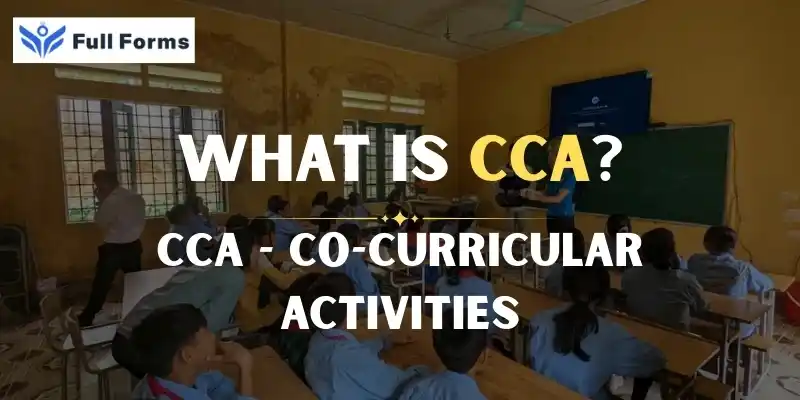Co-Curricular Activities
(CCA)

Description
Co-curricular activities are referred to as all tasks, programs, and events that happen inside or outside of the classroom but complement academic curriculum and are part of the modern assessment/grading systems.
In plain language, co-curricular activities refer to efforts/activity-based programs designed for students to enhance personality outside academics. Co-curricular activities are those programs and experiences of learning which do not fall under the purview of the traditional academic curriculum but have intimate connections with the life of a school. These may include or rather embrace sports, music, dance, debates, dramas, quizzes, clubs, volunteering activities, and field trips. Extracurricular activities may be wholly detached from academics whereas co-curricular activities mostly support academic curricula by making learning more effective.
They are meant not just for pleasure but for inculc discipline, confidence, cooperation, communication, time management, and critical thinking.
Value of Co-Curricular Activities
Co-curricular activities have a great value in the life of a student. Some of the important values are given below :
1. Promotes All-Round Development
Academics are very helpful towards the intellectual development of an individual but at the same time, CCAs contribute to emotional, social, physical, and moral growth. A football player may develop leadership quality and acquire team building skills whereas a member of a drama club can be expressive as well as confident. When students get up to perform, lead something , or win any competition, they just build the confidence in themselves. Gradually this helps them speak well and express their thoughts clearly to others too.
Social and Leadership Skills
Most of such activities require team work which inculcates cooperation, respect for others, conflict resolving techniques and even team sprit. Leading a group polishes leadership qualities as well. Participation in CCAs can enhance academic performance. Individuals who pay attention to activities such as music or debate often have better concentration, memory, and language abilities. They keep time management skills which assists them in studying.
5. Relieve Academic Stress
School life is accompanied by stress because of tests and assignments. There is a healthy outlet of energy and emotions through participation in co-curricular activities that makes students relaxed in learning which happens outside the classroom.
Types of Co-Curricular Activities
Some broad categories into which co-curricular activities may fall are: Literary Activities Performing Arts Sports and Physical Activities, Visual Arts and Crafts, Clubs, and Societies Social & Community Service
- Essay writing
- Debating
- Quiz
- Elocution
- Creative Writing
- Music Vocal or Instrumental
- Dance Classical or Contemporary
- Drama and Theatre Speaking
- Athletic Team Games Football Basketball Volleyball
- Yoga
- Martial arts
- Gymnastics
- Drawing
- Painting
- Sculpture
- Craft
- Photography
- Videography
- Science Club
- Eco-Club
- Literary Society
- Robotics
- Coding Club
- Tree Plantation Drive
- Cleanliness Drive
- Blood Donation Camp
- Volunteering at NGO
Every one of these leads to a different dimension of development and interest or talent of the learner.
Role of Schools and Teachers
The effectiveness of co-curricular programs largely depends on how well schools implement them. Schools must:
- Encourage participation from all students.
- Give everyone the same chances, no matter their gender or background.
- Have teachers and coaches who have been trained to help students.
- Make a schedule that includes both schoolwork and fun things to do.
They also play a key role in spotting the talent of students, mentoring them, and ensuring that their classwork does not lag behind because of participation in CCAs.
Problems and Solutions
Though very useful, co-curricular activities are surrounded by certain problems.
- Academic Pressure: Students think that it will hamper their studies. Parents also have the same notion.
- Lack of Facilities: All schools do not have proper infrastructure and funds to carry on varied activities.
- Rural or underfunded schools do not have as many opportunities to offer.
Conclusion
In today’s competitive world, knowledge alone does not prevail. Students must be whole individuals with creative thinking abilities, confident demeanors, and group work skills. Co-curricular activities play a major role in molding such individuals. These are the things that bring out hidden talents, teach life skills, and make learning fun and important. Students become both good workers and helpful, caring people when they do a mix of schoolwork and extracurricular activities. The real power of co-curricular education is that it makes the mind and soul better.
